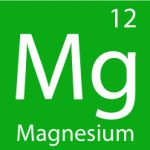This article aims to explore the details of just what is magnesium oil. Have you ever heard of magnesium oil? What about magnesium chloride? How do even know if you need extra magnesium?
Continue reading to discover the answers as well as where to find the best rated magnesium oil for your own use.
What is Magnesium Oil?
It is actually not an oil at oil but a super concentrated liquid form of pure magnesium chloride.
For further details on magnesium chloride, please click on this link.
Magnesium chloride, in short is one of the most bioavailable forms of magnesium out there. By being bioavailable, that means that almost all of the magnesium that you apply is absorbed and directly transported to the parts of the body where it is most needed.
What is Magnesium Oil for?
Magnesium oil is used as a treatment for magnesium deficiency which is way too common in our society.
Anybody who notices any of the following symptoms may be suffering from a magnesium deficiency and not even be aware of it:
- Fatigue or tiredness
- Sleep disturbances
- Muscle aches
- Muscle spasms, cramps, twitches
- High blood pressure
- Migraines
- Heart palpitations
Have a look here for a full list of more magnesium deficiency symptoms.
If you also note any of the risk factors listed below, chances are that you are in the 75% of the population that actually needs to supplement their magnesium intake.
Risk factors include:
- High level of exercise
- High intake of refined sugars, processed foods, alcohol, caffeine and/or carbonated drinks
- High stress whether it be physical or mental
- Medications including oral contraceptive pill, ACE inhibitors or diuretics
- Diabetes
Why use magnesium supplements?
Magnesium is an extremely important mineral in our body.
We can store it, but we don’t make it and, being a macro-mineral, we actually need 320mg for women and 420mg for men daily in order to have enough magnesium to carry out the required tasks.
Magnesium is effective in:
- Muscle relaxation
- Prevention of calcium deposits such as gall stones
- Maintaining regular heartrate
- Normal blood pressure

- Balancing electrolytes
- Activating enzymes
- Production of energy
- Metabolisation
- Smooth muscle and neurotransmitter function
- Replacing ‘bad’ hormones with ‘good’ hormones
- Decreases anxiety
- Improves sleep
- AND MORE….
Further reading: What is Magnesium For?
We can try to get the recommended daily amount of magnesium in our diets but this often proves impossible so many people are turning to supplements for help.
What is Magnesium Oil and Where Does it Fit In?
Magnesium supplements come in many different shapes and sizes. Some of the more popular choices in magnesium supplementation include magnesium chloride, magnesium gluconate, magnesium citrate and magnesium glycinate.
Magnesium oil is a magnesium chloride which is one of the best forms due to its high bioavailability and ease of use.
This form of magnesium is not consumed orally but is sprayed or rubbed directly into the skin for absorption directly into the body and transported directly into the cells without going through the digestive system and being metabolised at all. This means that there are virtually no GI side effects such as the occasional nausea or diarrhoea you may suffer with other types of magnesium.
How do you use Magnesium Oil?
 Magnesium oil generally comes in a handy spray bottle.
Magnesium oil generally comes in a handy spray bottle.
The dose is around 8 sprays onto your skin and then it is recommended to rinse this off after 20 minutes. It is advised to spray the magnesium oil onto soft skin such as behind your knees, or your inner arm to facilitate improved absorption. Some brands recommend to spray directly onto the bottom of the feet. After 20 minutes, over 85% of the magnesium has been absorbed into your bloodstream.
You can even spray and massage the oil directly onto sore and aching muscles for pain relief.
Where Does Magnesium Oil Come From?
The best sources of the purest magnesium chloride which is used for magnesium oil is mined using solar evaporation from places that are free from contamination such as the ancient Zechstein seabed, the Dead Sea or the Great Salt Lake. These sources are pure, organic and additive free.
Are There any Negative Effects?
Some people report itchiness and tingling when using magnesium oil until it is washed off. This is dependent on the individual and the sensitivity of skin. To avoid this, some consumers actually dilute the oil before use. Some brands advise to start off with a lower dose and gradually work your way up to the full amount of oil.
Magnesium chloride is also available as a lotion which combines the pure magnesium with added aloe vera to soothe the skin.
What is Magnesium Oil – The Best Brands?
The top selling brands of magnesium oil available on Amazon include:

 Ancient Minerals Magnesium Oil 8 oz.
Ancient Minerals Magnesium Oil 8 oz.
Price: $18.80
Magnesium Source: Ancient Zechstein Seabed
Rating: 4.1 out of 5 stars
Magnesium OIL 100% Pure Natural Dead Sea Minerals 8 Oz
Price: $19.95
Magnesium Source: Dead Sea
Rating: 4.5 out of 5 stars
Best Magnesium Oil Spray – 100% Pure & UNDILUTED Magnesium Supplement 
Price: $19.97
Magnesium Source: Ancient Brine Well USA
Rating: 4.4 out of 5 stars
 12oz Magnesium Oil with ALOE VERA – LESS ITCHY
12oz Magnesium Oil with ALOE VERA – LESS ITCHY 
Price: $23.95
Magnesium Source: Great Salt Lake USA
Rating: 4.4 out of 5 stars
What is Magnesium Oil?
Have your questions been answered today?
Please comment below if you have any further questions on this or other magnesium related subjects.






Permalink //
I never knew that so many symptoms can be caused through being deficient in magnesium! I guess for me, the fact the oral contraceptive is a risk factor means loads of women may be short of magnesium. I like the idea of the spray being readily absorbed, but do you have any recommendations for tablet forms? Not everyone likes a spray and I would be keen to know what are the next best options for getting magnesium into the body. Interesting article!
Permalink //
Thanks Mara,
Some of the best oral forms come in an oral magnesium citrate powder (may cause diarrhoea)
or an oral high absorption capsule which is chelated for better absorption (large tablet)
or possibly an oral liquid magnesium gluconate may be the answer for you (highest bioavailability)
Have a look here and here for some of my top picks.
Regards, Kristine
Permalink //
Hi Kristine,
I don’t think I have a magnesium deficiency since I’m not experiencing any of the symptoms right now but this is very interesting info.
I currently take a daily supplement for women which contains a small amount of magnesium (2 mg). On the supplement bottle it says that this is 100% of the recommended daily value for magnesium. I’m curious as to why this number is so much lower than your figure. Also if I were to become deficient I think the oil sounds like the way to go. I’ve been reading more and more that some supplements contain harmful ingredients and that the industry isn’t too regulated.
Erica
Permalink //
Hi Erica, I am confused by this too!
The recommended daily amount of magnesium intake is 320mg for women as postulated by the National Institute for Health. 2mg doesn’t even touch the sides.
Depending on the type of magnesium it is i.e. chloride, oxide, citrate, perhaps the figure pertains to its bioavailability…
I don’t suppose you could take a picture of the label for me and email it to info@whatismagnesiumdeficiency.com so I could provide you with a more definitive answer?
Thanks and kind regards, Kristine
Permalink //
Wow,
what a wonderful and informative article! Information on Magnesium and magnesium related products is all over the place, but I’ve honestly never seen so much of it in once place!
I really enjoyed reading through this, and I might just order some. I’ve been hearing about how helpful it is for the longest time, but I’ve never actually gotten any!
It’s time to stop being lazy haha! Great article, thanks so much for sharing all the knowledge!
Permalink //
Hi Steph,
Magnesium seriously is as good as it sounds!
Thanks for reading, Kristine
Permalink //
Hey Christine:
A timely post for me since I am probably one of the 75%. I had never thought of magnesium OIL as a way to get the mineral into my system. I do tend to get nauseous when I’ve tried the assorted oral supplements. Or else I relax so much it’s like I have to take the things at night to avoid falling asleep at the wheel during long car rides. It definitely makes me TOO relaxed.
Your post is very helpful and well laid-out. Thank you….
Permalink //
Hi Netta,
Yeah, a lot of supplements advise to take them at night half an hour before bed for this reason.
Perhaps this transdermal mode of magnesium delivery would be perfect for you to get exactly what you need without the drowsiness.
Thanks for commenting, Kristine G
Permalink //
Hey There!
I found this information super helpful! I have been suspecting that I have a magnesium deficiency for quite some time, but I didn’t really know what to do about it besides soaking in Epsom salts. Which is really nice, but I’m not sure how effective it is. I crave chocolate and nuts all the time which I’ve heard is one sign of magnesium deficiency. I am really excited to try out a magnesium oil, Thanks for the information!
Permalink //
Hi Shelby,
Yep, the magnesium oil is a great convenient way to get extra magnesium. A great idea is to still enjoy your epsom salt bath soaks on alternate days and use the magnesium oil spray on the other days.
Spray directly onto your skin, remember it is normal to feel a slight tingling the first few times you use it. Rinse after 20 minutes or so.
Enjoy!
Best wishes, Kristine G
Permalink //
Thanks for such a descriptive post!
I’ve just now started researching magnesium because I suffer from migraines and think magnesium deficiency might be a cause.
I used to regularly take Epsom salt baths, which I assume helped? It’s been a while so I can’t really remember if it helped or not, and I wasn’t looking for results in my migraines, just was using it as a sore muscle soak (wasn’t aware of all the properties but knew it helped sore muscles).
Do you think Epsom salt is a good way of absorbing magnesium as well?
I’ll definitely be checking out the magnesium oils above in the meantime!
Thanks again for the article!
-Heather M.
Permalink //
Hi Heather I am so glad to have been able to help you.
Please have a read of some of my recent articles here all about Epsom Salts, and the effect of magnesium on migraines for further information.
Thanks for reading, Kris
Permalink //
Hi here. I am excited to read about magnesium because this mineral takes an important place in my day routine. I did not try Magnesium Oil, but I use magnesium supplement which provides great results for. I do not feel any side effects.
I read about Magnesium Oil that it works because it does not have laxative effect. Of course it absorbs through the skin and it does not reach intestine.
I think it would work for people who have muscle cramps or after exercises to relax muscles.
The Magnesium is a mineral, from nature and it does not have side effects as chemicals.
All the best spreading the message about beneficial supplements, which help us to stay in a good shape.
Be healthy and wealthy, Nemira.
Permalink //
Thanks Nemira, and the same to you!
Permalink //
I’d never hear that magnesium oil can help with joint pain!
My boyfriend has TMJ and I’m wondering if maybe this would help him. I’m thinking he could just spray it onto his face/jaw to help relieve pain. Do you recommend any organic brands? The fact that it helps with sleep is definitely a plus too, since he seems to get up a couple times during the night.
Permalink //
Hi Katie, Ancient Minerals brand of Magnesium Chloride is organic with 100% magnesium which is extracted in such a way as to preserve purity. Give it a go!